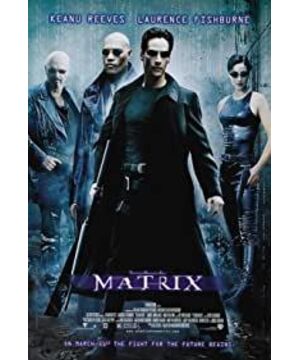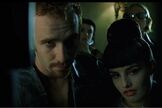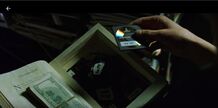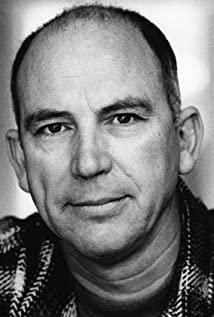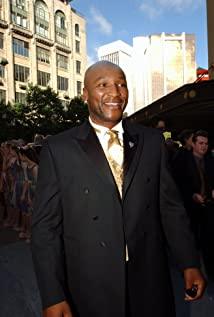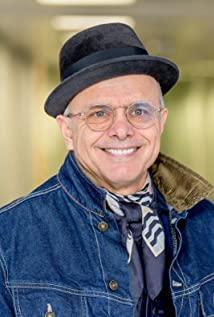What is true?
Where is the line between virtual and real?
Can we judge that the world we live in is real?
1. What is true?
It depends on how we define "true". If "true" is the way things are. Then judging whether a thing is true is equivalent to judging whether it is what it is. But how do we know how things are? The general answer is: through our senses—sight, touch, hearing, smell, taste, and others. However, we probably all admit the fact that there are differences in the feelings of different people, so when different people form their feelings about a thing through their own feelings, their feelings about the thing are naturally at least as good as A slight (possibly large) difference. So whose feelings will fully reflect the original appearance of this thing? If there is such a person. What's more, we've probably suspected that these feelings are so subjective that we can't see everything objectively, and we can't see the world objectively. The mother body in "The Matrix" gives the people in the culture bottle various realistic sensations. She makes people's brains receive these sensory signals, but the human brain cannot distinguish whether these signals come from the virtual world or the real world, so the virtual and the real The line between them blurs and even perishes. This premise assumes that all our senses come from the brain. The human nervous system, the mechanism used to transmit signals received from the outside world to the brain, where it is processed, and then forms a "reflection" of the "outer world" in what I call the "inner world". From the above description, we have already noticed the problem - the "reflection" in the "inner world" is not the "object" itself in the "outer world". So if we want to understand the world through "truth", then our previous definition of "truth" - "truth" is the way things are, has to be revised. Look how simple it is! Language plus logic is a powerful tool for us to understand the world.
2. Where is the line between virtual and real?
First look at these two words, virtual and real are a pair of antonyms, imitation, simulation, simulation what, simulation real. From the literal meaning of the word, the virtual exists based on the real. In the film, these two words are embodied in the virtual world created by the matrix and the real world like ruins. Inherited from the assumption of "The Matrix", when the sensory signal from the mother to the brain and the signal from the real world are so close that the brain cannot distinguish, this boundary disappears. Imagine that this signal is very realistic, the fidelity is close to 99.999% (infinite loop), just like 0.9999 (infinite loop) = 1 in mathematics, we can even say that subjectively it comes from the real world, because the brain judges this are signals from the real world, and the concept of "real world" is formed by the brain. So logically this kind of signal fits the definition of "real world". So you see, how important logic is. However, according to my observation of people, the fidelity is not so high. The human cognitive system is not so accurate, otherwise there would not be so many people who are amazed by the wonderful magic show. However, "The Matrix" also mentioned a point, from which we can lead to an important philosophical debate that has lasted for more than two thousand years - the dispute between "experience" and "rationality".
When Neo met Morpheus for the first time, Morpheus said to Neo, "...there is something wrong with this world, and although you can't say why, you know it must exist..." The way people know the world is by feeling, yes, but feeling only provides material, and knowing the world is not only the direct reflection of the signals transmitted by the brain to the nerves in the "internal world", which is basic; The brain produces a direct reflection of the "outer world" in the "inner world" by processing these materials, but realizes that this is the appearance of the "outer world", so it attempts to discover the essence of the "outer world" through the appearance. Human beings are really obsessed with "essence"! Plato's "Myth of the Cave" provides a good example of why the world we perceive is not necessarily the essence of the world, and this example can also complement our discussion of "What is true?" However, some people soon raised objections. His disciple Aristotle challenged the teacher's "reasonable world", so I won't talk about it here.
In the history of philosophy, many philosophers have the view that experience is unreliable because of its subjectivity, so in order to understand the world, reason is a more objective tool. Perhaps it is because of reason that human beings have so many achievements. But based on the subjectivity of the material and the channels through which people acquire rational thinking (I think this kind of thinking is not innate), can we say that rationality stems from subjective feelings, and then deduce that "rationality is also empirical"? Pulling away, back to the question, where are the boundaries? In what Morpheus said to Neo - "...what's wrong...", it's the brain that thinks there's something wrong, the boundary is "the brain thinks", the brain thinks true is true, and false is false . When the brain cannot perceive the difference between virtual and real, such a virtual is real. In the final analysis, many problems are problems of definition, or the connotation and extension of concepts.
3. Can we judge that the world we live in is real?
Consider first the following questions: "Would Morpheus be aware of the existence of the Matrix without the prophet Morpheus?", "If it weren't for the help of Morpheus, would Neo have awakened himself into the real world even though he felt that something was wrong with the world?" To answer whether we can The question of judging the truth of the world, if we only discuss it in the scope of movies, can be transformed into the question of whether we can judge whether the world is virtual or not. Then we are facing the same problem as Neo. How does Neo recognize the difference between the world controlled by the Matrix and the real world? He was cut off from the Matrix by Morpheus and his party, who unplugged him and allowed him to travel between the two worlds again. This is how he went from hysterical disbelief at first to seemingly enlightened at the end. There is a very important process in this, that is, comparison. Morpheus told Neo: "We have a rule that never liberates the adult mind, it's too dangerous, and ingrained stereotypes are hard to let go..." The world is thought to be the real world. Neo's ingrained stereotype, which the film refers to, is that the matrix world he lives in is the real world. There's nothing wrong with him until he's rescued into the movie's other world - the real world. When I say this, I mean that the world in which Neo is rescued is called the real world in the movie. When it comes to "called", you should feel the power of words. If in addition to the virtual world and the real world in the movie, there is a world that can include the two, then which one is more qualified to be the "real world" in the movie and the world that includes the two? Is "called" the "real world"? And to explore the truth and falsehood of the world we live in outside the film, if we define this world as true, then it is the real world, if we define "it is what it is" as true, then our problem is how to know for sure This "as it is". Doubt is one thing, confirmation is another. If it is to ask if we are in a virtual world according to the setting of "The Matrix", I want to answer who has a similar experience with Neo. But then another question arises.
OK, after discussing the more serious issues, talk about something else. In the first scene of the movie, Neo gets into Trinity's car. When Switch points a gun at Neo and asks him to choose "ourway or highway", Neo has already opened the door to get out of the car, but after Trinity's simple persuasion, Neo believes her . Trinity's words are not very persuasive here, but of course Neo can't get off for the sake of the plot. Neo himself has doubts about the world in which he lives, and of course he wants to know the truth, but the insecurity caused by his life being threatened when a gun is pointed at him makes him a little hesitant about the correctness of the decision to come to meet, So getting out of the car is a subconscious action to escape danger. There's nothing unreasonable about it. But I think it would have been better if Trinity had called Neo earlier, before the door was wide open, or less than halfway open, to help him clear his mind at that moment of hesitation. But the movie also shows that. (Am I being too picky (⊙o⊙)?)
It is worth mentioning that the action fighting scenes of this film incorporate a lot of martial arts movements, which also imitated Bruce Lee's signature moves. The phrase "I know KungFu." is a tribute. In addition, the lines of the film are also remarkable, and many dialogues are thought-provoking. There are also some places that show the wisdom of the East, "There is no spoon." is more like a Zen sentence. And Neo's transformation at the end of the film is like an epiphany.
View more about The Matrix reviews


